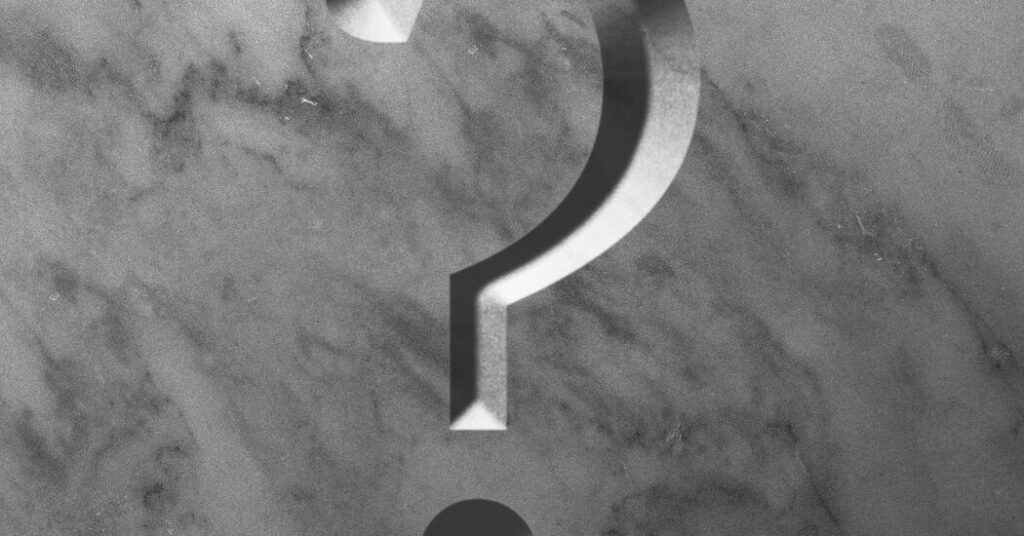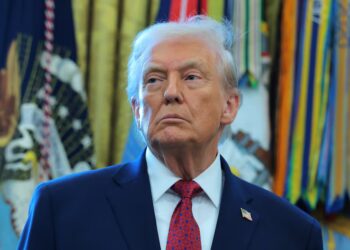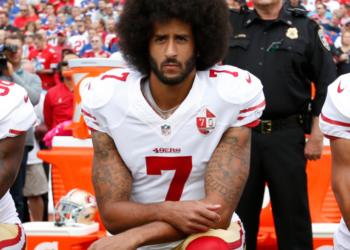It didn’t take long for the controversy over Nick Fuentes and his influence in conservative circles to become a proxy war over something bigger than one antisemitic talker: namely, the question of right-wing “post-liberalism” and whether this tendency, variously associated with nationalists and populists, Catholic integralists and Nietzschean vitalists, Trumpist think tanks and JD Vance, can be held responsible for Groyperism or any other toxic tendency on the contemporary right.
Like “cancel culture” not so long ago, post-liberalism has become a crucial signifier in our debates without anyone agreeing on what it actually describes. So let me attempt to make some concrete claims about what we’re arguing over.
Post-liberalism usefully refers to two distinct but overlapping tendencies: First, the rejection of the liberal consensus of the post-Cold War era, usually described as “neoliberalism” (another highly contested term), in favor of a more right-wing or left-wing politics that still probably belongs inside the liberal tradition. Second, a more root-and-branch rejection of the entire liberal order — often reaching back for inspiration to liberalism’s religious and reactionary critics, sometimes repurposing Marxist thought, sometimes looking ahead to a future that’s post-liberal because it’s post-human as well.
It makes sense to group these different ideas together under the rubric of post-liberalism for two reasons. First, they have gained ground collectively as a response to liberalism’s perceived crisis and amid a shared experience of destabilizing technological and cultural change. Second, thinkers and writers often move back and forth between “soft” and “hard” forms of post-liberalism, making definitions slippery even in individual cases. I’ve written about this instability in the specific context of the Catholic post-liberals (figures like Patrick Deneen, Sohrab Ahmari and Adrian Vermeule) who sometimes sound like 19th-century reactionaries and sometimes more like late-20th-century neoconservatives. But it applies to other forms of post-liberal thought as well, from the socialist left of Zohran Mamdani and Hasan Piker to the Christian nationalist right.
Political post-liberalism, however, does not begin with post-liberal ideas. It begins with the inchoate populist revolts of the Brexit referendum and Donald Trump’s victory in 2016, which precious few intellectuals anticipated, and it has taken various ad hoc and unstable forms since then. A short list of those forms might include the “peak woke” cultural regime of 2020 to 2022, which was a post-liberalism with academic origins that deliberately resisted attempts to define its ideological contours; Trump’s second administration, which is post-liberal in a sense highly specific to Trump himself (protectionist and personally corrupt, e.g.); and the managerial systems that seek to contain populism using illiberal means, of which Britain’s censorious regime is the most notable example.
None of these systems are fully post-liberal, and none of them are founded on a clear worldview that can be traced to a specific set of thinkers. Rather, they’re all contingent responses to popular ructions and elite panics, with theory stapled on belatedly.
This means that what the post-liberal thinkers are doing, for the most part, is trying to describe and guide popular rebellions, whether by fitting them into pre-existing critiques of the liberal order, adapting those critiques or inventing novel ones. They are not, in the lingo of the internet, “player characters” in the current discontents; they are explainers, advisers, would-be guides, who are chasing political developments rather than driving them.
From the point of view of their liberal critics, this need not make them any less culpable — if you go along with the mob, you are guilty of its crimes; if you endorse the demagogue, you are party to his sins. But their culpability isn’t causal, and if you removed them from the story, someone else would play their part, and the underlying crisis would probably look more or less the same.
What is that underlying crisis? Here’s a stab at explaining it. Like a complex genome, the liberal order always contains within itself certain destabilizing tendencies — toward hyper-individualism, demoralization, class conflict, alienation, anomie — that get expressed more intensely under certain environmental conditions.
In the later 2010s, some kind of environmental shift happened, mediated by elite failure and the tech shock of the smartphone and secularization and deindustrialization and mass migration and more, that caused these tendencies to surface and reshape politics. Then Covid-19 came along as a unique historical accelerant and took us from a decadent-but-stable phase of liberalism to what now looks like a more chaotic and transitional period, all under the deepening shadow of artificial intelligence and demographic collapse.
So far, post-liberalism is much, much better at describing the origins of this crisis than at figuring out how to master it. Liberals tend to underrate post-liberalism’s descriptive power because it often speaks the language of philosophy or psychology or theology, and neoliberalism in its decadent phase talked itself into a policy-minded reductionism, in which quantification is everything and all complaints are deemed irrational if G.D.P. is going up. But prescription is another matter and there the liberal critique draws blood: Governance is fundamentally policy work, a philosophical or spiritual diagnosis doesn’t yield an obvious policy program, and in practice post-liberalism often veers among crankery, half-baked programs and personalist cults.
Here a comparison with the 1970s and 1980s is useful. That period, too, was a kind of crisis of liberalism, which yielded various experiments in response to its economic and cultural shocks. But within roughly a decade, in the governments of Ronald Reagan and Margaret Thatcher, you could see pretty clearly what a successful form of “neoliberal” politics would look like.
Whereas we’re almost a decade out from the Brexit vote, and I don’t think anyone would describe any of the post-liberal forms of government as similarly successful — and the current trajectory of the second Trump administration does not exactly inspire confidence that it will be handed off to Vance or anyone else in 2028. (My own modest proposal for some synthesis of Vancian Catholic populism and Muskian techno-futurism has already come to grief.)
At the same time, we’re going to keep getting post-liberal experiments and rebellions — just take a glance at polling in Britain, if you doubt me — because all the attempts to restore liberal normalcy, whether from the center-right or center-left, keep getting dragged under by their own follies and internal contradictions, often while succumbing to precisely the authoritarian temptations that they claim to be defending us against.
So if the post-liberals can be held partly responsible for creating conditions under which figures like Fuentes can find an opening, then the liberals have to be held partly responsible for creating conditions under which post-liberalism shows no signs of being answered, cured or successfully suppressed.
But to my mind the best way to think about it is that the liberals and post-liberals slinging epithets at one another are locked together in a cycle of mutual failure, both striving to master events that are happening independently of any theory or intellectual worldview. Which ideally should inspire a dose of mutual sympathy and maybe even productive conversation across this particular divide.
When I said something like this on social media, the left-wing writer John Ganz quoted Hannah Arendt to suggest that doing analysis this way, talking about how we’re all just caught up in large historical forces, can end up as an excuse for acquiescing to authoritarian evils and excusing people for collaborating with them.
This is a fair warning. But unlike Ganz, confident in a very specific antifascist narrative, I don’t think we actually know which form of contemporary politics is the most dangerous or destructive for the long term. And we certainly have no idea what form of politics — a renovated and renewed liberalism, a more humane and serious post-liberalism, an unexpected marriage thereof — is going to see us through this crisis or build something on the other side.
The only thing I feel sure of is that there has to be some form of synthesis, some incorporation of insights currently in conflict, some vision that stands a little bit above the current battle lines. And that any ideology, liberal or post-liberal, that feels certain of its prescription right now is doomed to see 21st-century reality slip further from its grip.
Breviary
Aris Roussinos on technocracy’s last sigh.
Samo Burja on civilization’s lost history.
Charles Fain Lehman on the true scale of antisemitism.
Donald S. Lopez Jr. on the varieties of Buddhism.
Alan Jacobs on modernizing the gospels.
The post What Is Post-Liberalism, Anyway? appeared first on New York Times.




